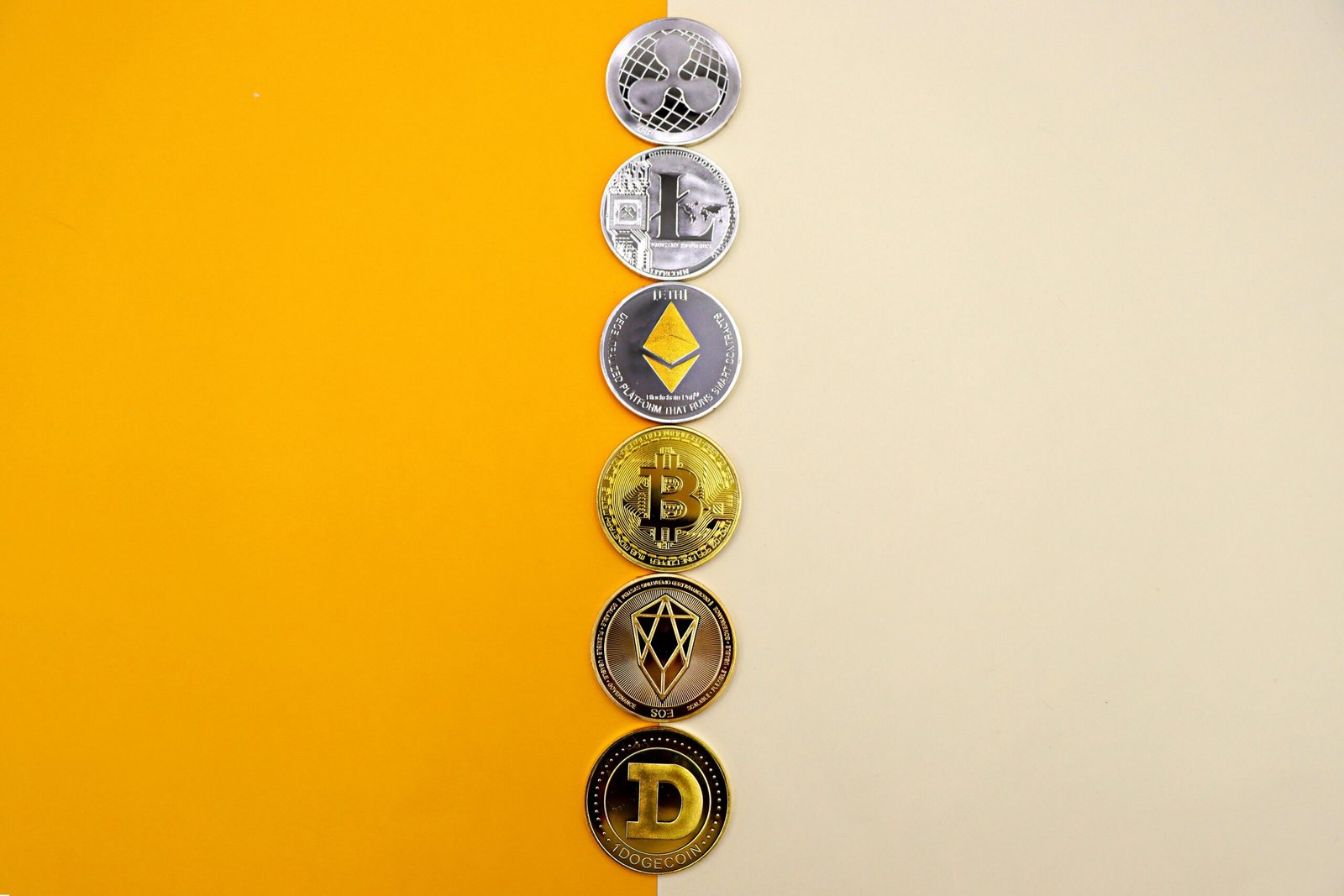The 2025 business landscape is defined by unparalleled technology disruption that is reshaping industries at a faster and faster pace. Emerging technologies such as AI, blockchain, 5G, and IoT are not niceties but cornerstones of business strategy. Businesses everywhere are adopting these technologies to drive performance, customer experience, and competitiveness in an era of digitization where speed of change is high.
The business world in 2025 is expanding rapidly driven by unmatched technological advancements. New technologies such as artificial intelligence (AI), blockchain, 5G networks, and the Internet of Things (IoT) are not a choice but a requirement to survive in the business world. The businesses that fail to adopt these innovations stand the risk of being left behind in a rapidly digitized economy.
Artificial intelligence (AI) is among the most potent business strategy drivers. AI-fueled automation, data insights, and machine learning algorithms help organizations automate, make better-informed decisions, and deliver enhanced customer experiences. From AI-based chatbots that offer 24/7 customer support to predictive analytics streamlining supply chains, companies are harnessing AI to drive efficiency and lower costs. Personalization by artificial intelligence is also changing marketing and allowing businesses to personalize products and services based on customer behavior and preference.
Blockchain technology is also transforming business operations, mainly in finance, supply chain, and cybersecurity. Blockchain’s decentralization and immutability provide more transparency, security, and trust in transactions. Banking and real estate sectors are utilizing smart contracts to automate transactions while supply chains are leveraging blockchain for tracing the origin of products to make it ethical and responsible sourcing.
5G deployment has brought new commercial opportunities with ultra-high data speeds, low latency, and more reliable networks. Industries that are dependent on real-time data, such as autonomous vehicles, telemedicine, and remote work solutions, are reaping tremendous benefits from 5G. Businesses now can act quickly, enabling responsive collaboration and better digital services. Fast deployment of 5G is also accelerating IoT deployment, connecting billions of devices globally.
Another disruptor is the Internet of Things (IoT) that is revolutionizing business and industry with networked intelligent devices. IoT-based predictive maintenance smartens up manufacturing business with less downtime and expenditure. IoT-based inventory management systems are becoming the norm of the day for retailers as a means of streamlining supply chain issues, and IoT wearables find application in hospitals and healthcare facilities as remote monitoring for patients to enable maximized preventive care. Organizations are able to make better decisions and maximize overall efficiency through real-time output from IoT devices.
As businesses ride this wave of technological change, digital transformation is no longer a choice but a necessity. Businesses must continue to transform to stay in the game, invest in digital infrastructure, reskill and upskill talent, and develop an innovation culture. Those businesses that can successfully integrate AI, blockchain, 5G, and IoT into their framework will not only survive but flourish in the ever-changing landscape of 2025 and beyond.
The global data-driven decision-making and automation mania has flipped business as usual on its head. Early adopter companies that are leading the charge on the new technology will swamp laggards holding back. Early adopter companies automate, streamline the supply chain, and purchase cybersecurity ecosystems. AI, blockchain, and IoT together have created a symbiotic digital economy where one can easily share information and use predictive analytics and automated decision-making at a scale unimaginable in the past.
This article introduces the latest trends that define business technology in 2025 and digital technology transformability for modern businesses.
Current Trends Defining the Business Technology Agenda
1. AI and Machine Learning (ML) Leadership
Artificial intelligence and machine learning remain at the forefront of business disruption in 2025. Artificial intelligence technologies are revolutionizing industries by automating routine work, predictive analytics, and customer experience.
Process Automation and Streamlining: Tediousness is soon to become an anachronism with AI-powered automation, reducing errors, and improving operational excellence across industries such as finance, health care, and logistics.
Predictive Analytics: Businesses are leveraging AI to analyze enormous volumes of data, identify market patterns, and make data-driven business choices.
More Customer Interactions: AI-powered chatbots and voice assistants are enabling personalized customer servicing, satisfaction, and engagement.
2. Blockchain Beyond Cryptocurrency
Blockchain has moved beyond its early association with cryptocurrencies. Firms in 2025 are utilizing blockchain for many purposes, some of which include:
Supply Chain Management: Blockchain offers improved visibility and trackability of supply chains, reducing fraud and logistics waste.
Identity Security and Verification: Firms are using blockchain identity platforms in a bid to prevent identity theft and secure data.
Smart Contracts: Blockchains-based smart contracts are automating transactions and reducing administrative expenses in real estate, legal services industry, etc.
3. 5G and Edge Computing Redefining Connectivity
Massive rollout of 5G networks is introducing ultra-low latency communications, real-time consumption, and greater connectivity. 5G edge computing is decentralizing data processing, reducing reliance on central cloud computing, and facilitating real-time decision-making.
Ultra-Fast Data Transfer: Companies now process and analyze data faster, hence providing greater efficiency with less downtime.
Edge Computing: Bringing computing closer to where data resides, companies are cutting response time in use cases like autonomous driving and industrial automation.
Remote Work and Collaboration: Fast connectivity makes remote worker management and virtual collaboration securely possible.
4. Rise of Cybersecurity and Data Privacy
Since companies are increasingly digitally focused, cyber attacks are also on the rise to the detriment. Companies are resorting to advanced security controls for defending the sensitive data from cyber attack misuse.
AI-Powered Threat Detection: Complex patterns by AI-powered algorithms are being employed in anomaly detection, probable threat detection, and pre-emptive counter-measures.
Zero-Trust Security Policies: Organizations are adopting zero-trust policies like rigorous credentials verification and rigorous access to security systems.
Compliance Regulations: As data protection regulations are becoming stricter, organizations are enforcing rigorous protection of data for compliance.
5. IoT and Smart Infrastructure Development
Internet of Things (IoT) is transforming industries by leveraging real-time monitoring and automation through connected devices and smart infrastructure.
Supply Chain and Logistics Efficiency: IoT sensors simplify inventory, avoid wastage, and optimize delivery.
Health Revolutions: Wearable devices and remote monitoring devices are improving patient care and enabling them to diagnose diseases at an early stage.
Manufacturing and Industry 4.0: IoT-integrated machines and smart factories are improving production processes and reducing the cost of operations.
6. Embracing Sustainability and Green Technology
Due to growing concern over climate change, companies are turning towards sustainability by embracing green technology as a business venture.
Energy-Efficient Computing: Companies are employing low-energy servers and green computing practices in an attempt to reduce carbon footprints.
Carbon-Neutral Data Centers: Companies are investing in renewable energy-powered data centers as a measure to reduce environmental footprint.
Green AI Practices: Efforts are on to develop low power consumption AI models with similar efficiency.
The Role of Technology in Modern Business
Technology is no longer a luxury but a need for those enterprises that need to make it through 2025. Digitalization has several advantages, including:
Better Decision-Making: AI analysis enables enterprises to make better decisions.
Better Efficiency: Automation saves resources, removes inefficiency, and increases productivity.
Better Customer Experience: Tailor-made services, artificial intelligence chatbots, and web portals offer better customer experience.
Competitive Edge: Businesses that use high-end technologies compete more favorably with other businesses as they innovate quicker and respond well to market needs.
Conclusion
The business in 2025 is a hyper innovative and digitalized business. Blockchain, AI, 5G, IoT, and green technology are revolutionizing industries and industrializing industries. Those organizations that are aligned with these kinds of technologies will thrive in the long run and others will become irrelevant.
With changing technology, the organizations have to be ahead, have to be nimble, and invest in technology solutions which are their strategic compass. Businesses whose existence is threatened need to understand that technology is the driver of performance, the driver of growth, and the driver of customer satisfaction. Organizations, if blessed with the spirit of innovation, are above this hype in the world and can provide a rosy future.




